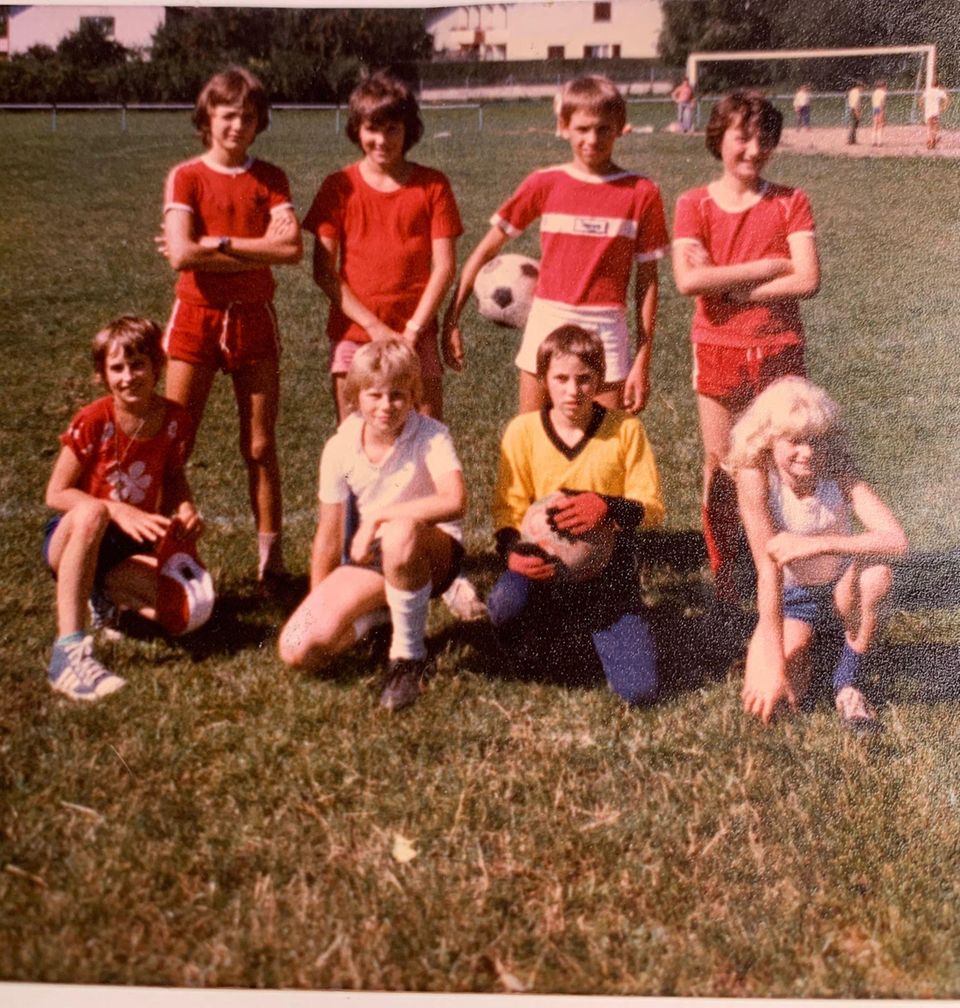The European Championship? A nice party. But it’s over quickly. Only in the Bundesliga does football fans find true support. A declaration of love.
Recently I found half a bag of potato chips in the living room cupboard. Carelessly crumpled up, tucked away between plates, egg warmers and fondue forks, the bag was eking out an existence, a relic of the European Football Championship. The chips were crumbling away, a symbol of the decaying memories of the European Championship.
The new Bundesliga season begins this weekend. This year, it may seem to some like a particularly dull day in football after the joyful excitement of the European Championships. Not to me. Quite the opposite.
The European Championship was a nice, short party. The Bundesliga is a lasting blessing. The European Championship was constantly compared to the summer fairytale of 2006, but it didn’t come close. With the Bundesliga, you know what you’re getting. It’s not always spectacular, but spectacular things are possible at any time. Leverkusen, for example. Or Stuttgart. Or Heidenheim. The European Championship was the exception, nice to have. The Bundesliga is the rule, an indispensable part of football fans’ lives.
In the film “Weekend Rebels”, based on a true story, an autistic boy searches for a favorite team and travels thousands of kilometers from stadium to stadium through Germany with his father. A scene repeats itself: the boy climbs the back stairs of a grandstand again and again and sees the green soccer field and the singing fans in the respective stadium for the first time from above. And the viewer sees the glow in his face at that moment.
Every stadium-goer knows this moment. A positive, expectant atmosphere can wrap the football fan up like a fluffy bathrobe wraps a cool sauna-goer.
The love for the Bundesliga begins early
My love for the Bundesliga was not predetermined. I belong to the generation that had to miss “Daktari” on ZDF at 6 p.m. on Saturdays because my father wanted to see Ernst Huberty on ARD. It was only after the 1974 World Cup that I became closer to the league – and to FC Bayern, which my father favored.
I knitted my first red and white scarf, a good two meters long, myself. I knew Beckenbauer’s autobiography “Einer wie ich” by heart, even though, as the son of left-liberal parents, I found it strange that he didn’t like Helmut Schmidt because of his “shark smile” but did like Franz Josef Strauß.
At the fair, I shot Bayern flags with my rifle at the shooting gallery and stuck them in the curtains of my room to simulate a fan section behind me. I listened to “Heute im Stadion” on Bayern 1, the broadcast including the Bundesliga conference, and screamed my heart out for 90 minutes. My parents put up with it. Only when I yelled “Beat the lions to death” in a variation of the line from the song “Where’s your mama gone” during the local derby between Bayern and 1860 Munich did my mother intervene.
Of rituals and emotions
Children need rituals, as we know from education. Football fans are often adults who have remained children. The Bundesliga offers them rituals when they visit the stadium: the same bratwurst every time, the same neighbors in the stands, the shared anger over the video evidence and the beer shower after a goal. In my student flat share in Hamburg, after FC St. Pauli’s home games, this included grilled chicken and chips, “ran” with Reinhold Beckmann and the pin table from Kicker magazine, which we looked after with far more devotion than the mountains of washing up in the sink.
But with the game itself, the ritual is accompanied by tension, the uncertain outcome, joy, disappointment, drama, excitement and sometimes everything mixed up. This mixture of the familiar and the unpredictable is what makes the Bundesliga so addictive. Then there are the prediction games, which every decent football fan can use to get an extra kick by competing with friends and colleagues. Those who don’t make predictions have no idea how much the correct prediction of a surprising 2:1 win for FC Augsburg in Mönchengladbach can make the weekend euphoric; they have no idea what hell you go through when a goal in the seventh minute of injury time reduces the points you’ve scored up to that point to zero.
The Bundesliga marks the weekend, it gives life structure and Saturday a meaning beyond mowing the lawn. It provides something to talk about at a boring standing party and with people who unfortunately aren’t allowed to say much about other important things. There is no other topic that makes Olaf Scholz’s government spokesman Steffen Hebestreit as talkative as the glorious past of his hometown club Kickers Offenbach, the 6-0 win against Bayern in August 1974 and the goals scored by Erwin Kostedde.
Bundesliga history is also a ball pit for smart-asses, of which I am one. Did you know that there are no pictures of the first ever Bundesliga goal, which Timo Konietzka scored for Borussia Dortmund on August 24, 1963 in Bremen? Or that legendary coach Hennes Weisweiler said of his player Günter Netzer: “It’s offside when the tall asshole passes the ball too late”? Do you know when the first Bundesliga game was broadcast live on television? Or who was the first team to defend the title?
Oh yes, the Bundesliga also has its bad sides. Commercialism, greed, aggressive fans, racism and much more. But none of this would disappear if it no longer existed. The Bundesliga, like the Bundestag, is a reflection of society.
The change of the league
I’ll soon be 58. I still enjoy watching the Bundesliga conference on Saturdays and smile calmly when I hear the commentators say that chances are no longer played out but “created” and balls are no longer shot into the goal but “netted”. Sometimes my age forces me to take a nap after 20 minutes of play, which cannot be stopped by a conference that is sometimes split into just four games, with the highlights being Mainz against Wolfsburg or Hoffenheim against Bochum. But I’m awake again for Bayer Leverkusen’s comeback.
In “Weekend Rebels” a spectator in Nuremberg says to the boy: “It’s always good when it’s not just Bayern.” And adds: “You won’t learn anything for life.” That’s no longer true. Even a diehard Bayern fan like me can only shake my head at how several of my heroes from the past have recently embarrassed themselves with coach dismissals and mismanagement. The lesson to be learned from this is that arrogance can be overcome even where it was considered a trademark.
With the new coach Vincent Kompany, the club is now “cast in a mysterious veil,” as the “Süddeutsche Zeitung” wrote. Nevertheless, Bayern’s dominance seems to have been broken for the time being. That’s a good thing. Even I can now enjoy the combinations of Bayer Leverkusen and the counterattacking football of VfB Stuttgart. My Bundesliga has even managed that.
Source: Stern
I am Pierce Boyd, a driven and ambitious professional working in the news industry. I have been writing for 24 Hours Worlds for over five years, specializing in sports section coverage. During my tenure at the publication, I have built an impressive portfolio of articles that has earned me a reputation as an experienced journalist and content creator.




